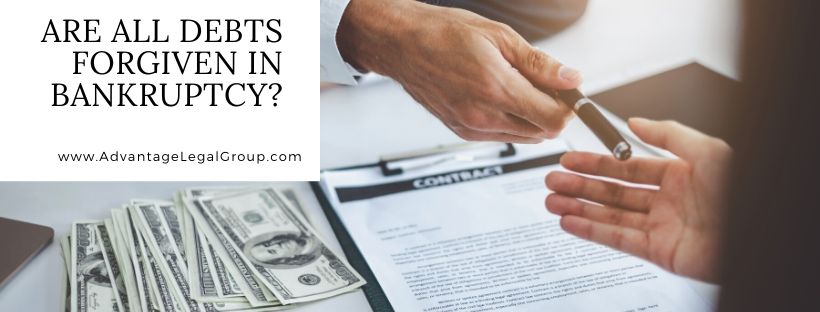Are All Debts Forgiven in Bankruptcy?
Bankruptcy is a very useful thing that can help many people and give them a fresh start in their financial lives. Many debts can be discharged in bankruptcy. However, there are sometimes exceptions. Debts that are commonly discharged in bankruptcy include things such as:
- -credit cards or unsecured loans
- -car repos and deficiency balances
- -SOME car accidents
- -material supplier debts
- -medical bills
- -lawsuits and judgments
- -evictions and unpaid rent
- -unpaid utility bills
- -foreclosure balances
There are exceptions, however, to the above standard discharges covered by going bankrupt. The following are four different examples of these exceptions:
Excessive credit card use immediately leading up to the bankruptcy. If you go on a major credit spree just before filing for bankruptcy, you may have troubles. The creditor may challenge your request claiming you never intended to pay for those items. If this happens your entire balance MAY NOT be discharged.
Being under the influence of drugs or alcohol when you cause an accident or maliciously or willfully causing an accident. Debts under these kinds of circumstances cannot be eliminated.
In the case of money owed to suppliers, if you STILL have material that the supplier can recover and resell, you have to return it. You don’t get to keep it, eliminate your debt and then resell the material for your own profit.
Committing fraud when you’re sued may prevent debts from judgments against you from being discharged.
More: How to get your credit on track for 2020
The aforementioned debts are the most common types included in bankruptcy petitions. It should be noted that each case is unique and has its own set of circumstances. Therefore you should always consult an attorney concerning your particular debts as well as do your own personal research.
See also:
– Should I File Bankruptcy?
– Bankruptcy and Divorce
– What Can I Keep After Bankruptcy?
